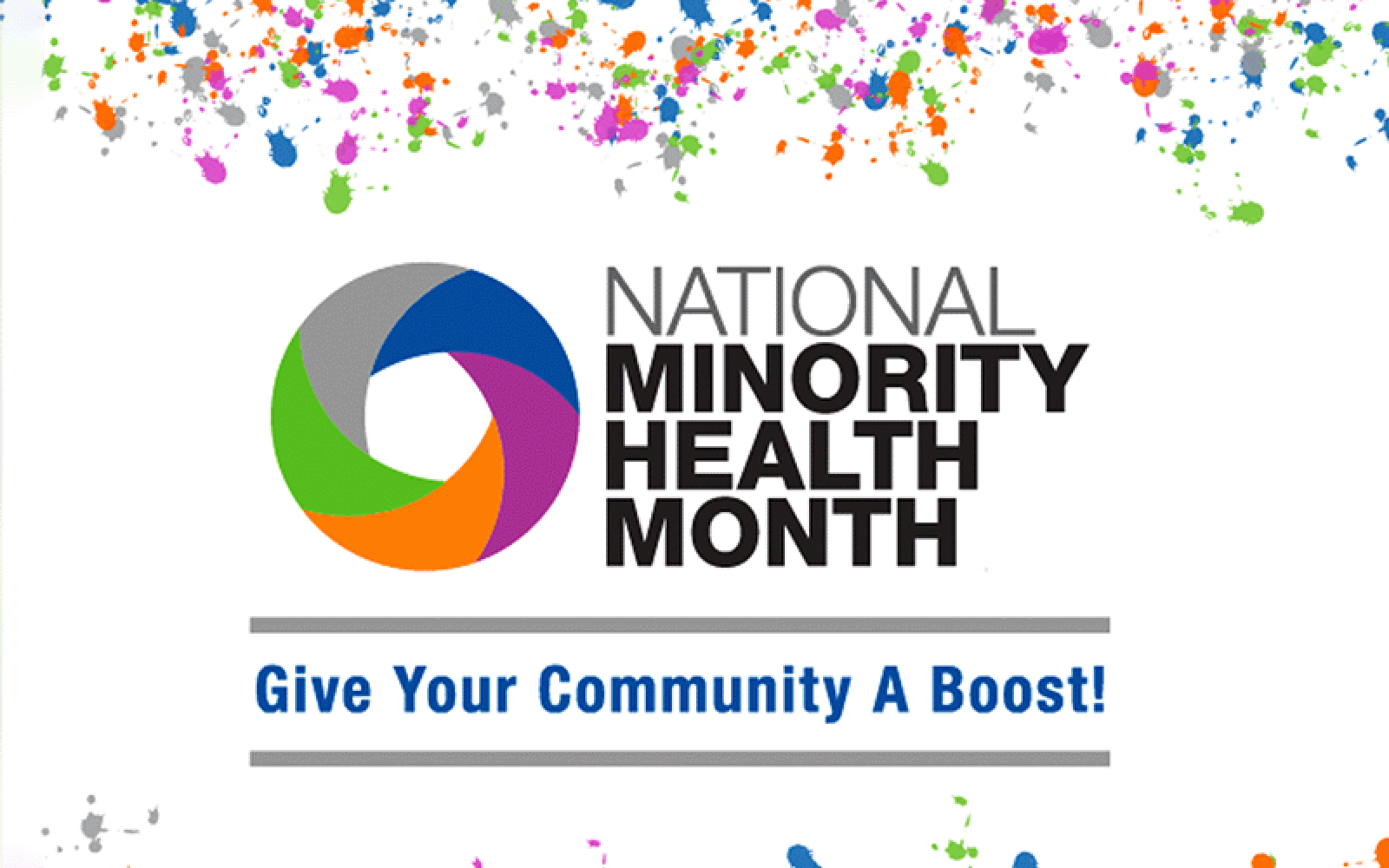Give your community a boost.
April is National Minority Health Month, a time to highlight the importance of improving the health of racial and ethnic minorities and reducing health disparities.

Celebrated every year in April, National Minority Health Month helps to:
- Build awareness about the disproportionate burden of premature death and illness in minority populations.
- Encourages action through health education, early detection and control of disease complications.
This year, the U.S. Department of Health and Human Services Office of Minority Health is encouraging everyone to give your community a boost by focusing on the continued importance of the COVID-19 vaccination, including boosters. Vaccination against COVID is one of the strongest tools we have to end the pandemic that has disproportionately affected communities of color.
According to the Centers for Disease Control (CDC), nearly 47% of all reported COVID cases impact minority populations, a group that accounts for approximately 40% of the population.
“No vaccine is 100 percent effective against any virus, but the more people who are vaccinated, the greater our odds are in preventing further spread,” says Medical Co-chair of Infection Prevention, Livette Johnson, M.D. “Once vaccinated, if a person does get the virus, they are more likely to recover without serious complications.”
Additional data from the CDC shows that African Americans are living longer. While this is good news, there is still work to be done. African Americans ages 18-49 are 2 times as likely to die from heart disease than whites. And, African Americans ages 35-64 years are 50% more likely to have high blood pressure than whites.
All of this points to the importance of establishing a relationship with a primary care provider (PCP) who can serve as a health care partner over a long period of time.
A primary care provider is the first person individuals go to for non-emergency situations when they feel sick or get hurt. In addition, primary care providers talk with their clients about all aspects of their health, including vaccinations, lifestyle changes to enhance well-being and help to manage medications.
Should an individual need additional care, the PCP will work with them to prepare an action plan. This action plan may include screenings to identify or monitor a disease, a referral to a specialist, as well as appropriate treatments and medicines.
Regardless of how a person is feeling, they should visit their PCP at least once per year for an annual exam. Regular preventive care, like an annual exam, helps better detect changes in health.
Focus on equitable health care
The professionals at Nashville General Hospital are on a mission “to improve the health and wellness of our Nashville community by providing equitable access to comprehensive, coordinated, patient-centered care.” If you need assistance maintaining your health, call the Nashville Healthcare Center at 615-341-4968.
Looking for a vaccine location?
All local health departments in the state offer walk-in options. You can also schedule an appointment to get your COVID-19 shot. Visit covid19.tn.gov or vaccinefinder.org to learn more.
About Minority Health Awareness Month
Every April, the U.S. Department of Health and Human Services Office of Minority Health observes National Minority Health Month to highlight the importance of improving the health of racial and ethnic minorities and reducing health disparities.
Sources:



